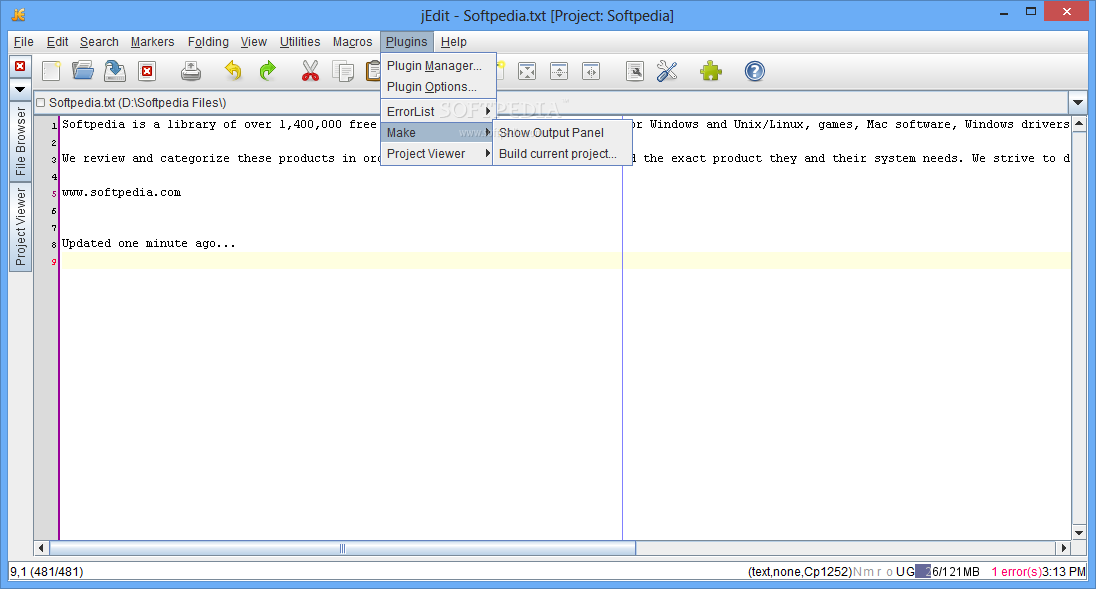

Then, I tried to connect to a server with jEdit:

Everything went smoothly for a little while.

) and, when I was satisfied everything would work, I deployed the new configuration. I set up a test server, made sure my SSH clients could all connect successfully, tested out other applications that are dependent upon SSH (ansible, subversion. This excerpt from sshd_config shows the relevant directives: # Supported HostKey algorithms by order of preference.

In particular, the generally accepted guidance for securing and hardening SSH has evolved. But the JSch library hasn't been updated since 2018, and the FTP plugin itself was last updated in 2016.Ī lot has changed since then. In order to "speak" the SSH2 protocol, the plugin bundles a common third-party library, JCraft's JSch. This, of course, requires that the plugin is able to negotiate a secure connection with the target host. When jEdit's FTP plugin opens a resource in SFTP mode, all filesystem operations are performed through the remote SSH server. You can point it at a URI like and the plugin will authenticate over SSH, load the file for editing, and save any changes directly to the server. While no one is using plain old FTP to maintain remote infrastructure anymore (I hope), jEdit's FTP plugin has long supported SFTP.
#Making jedit plugin manual
It allows for navigating to and editing files on remote servers as if they were local, without any intermediate manual file transfers. One of those plugins, FTP, has been indispensable.
#Making jedit plugin full
Among the features that keep me using jEdit are a robust find/replace engine with full regular expression support, the ability to open enormous files with a low memory footprint, portable settings, and a big library of plugins and macros to handle all sorts of tasks.
#Making jedit plugin windows
It's been my editor of choice on Windows ever since a coworker showed it to me back in 2006. JEdit is a powerful, extensible text editor geared towards developers, system administrators, and other power users. jar files into the user's jEdit preferences directory, and can be completed without making any changes to the system Java environment. This workaround involves placing one or two. Based upon the user's Java runtime version, a second open source Java library may be required to support additional SSH protocol features. No official solution exists, but the problem can be sidestepped by replacing the jEdit FTP plugin's dependency with an open source fork. Under certain modern "hardened" SSH server configurations, jEdit's FTP plugin is no longer capable of connecting, because it doesn't support the combination of keys or ciphers used by the remote SSH server. However, that plugin and at least one of its dependencies have gone several years without updates. The popular jEdit text editor, coupled with its FTP plugin, allows users to edit remote files over a secure connection through SFTP.


 0 kommentar(er)
0 kommentar(er)
